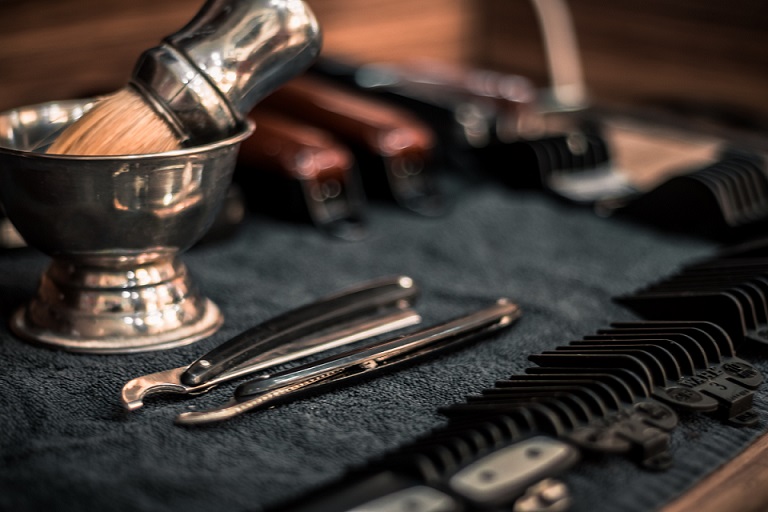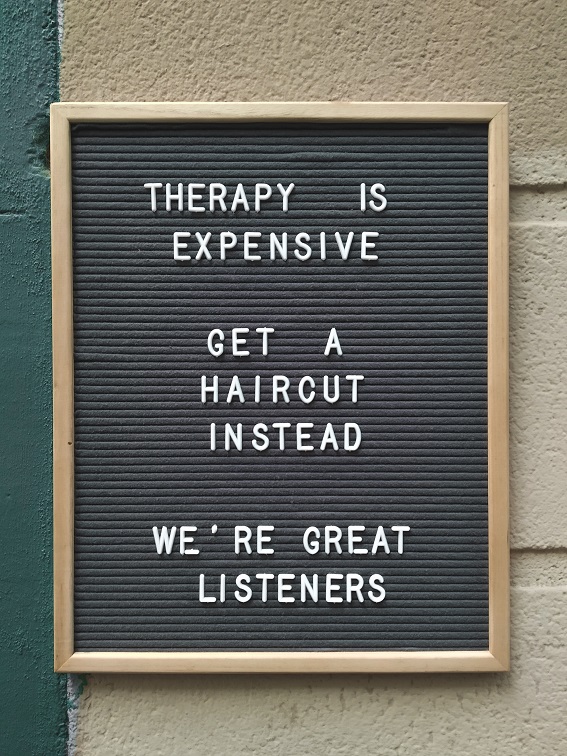Getting your haircut can be therapeutic, according to Lorenzo P. Lewis.
Stepping into a Black-owned barbershop is like stepping into the heart of a thriving metropolis. Throughout their history, barbershops have been the pulse of the Black community where people can exchange stories, discuss sports, and air their grievances. In Atlanta, Georgia, Lorenzo P. Lewis made the startling connection that barbershops present a unique opportunity to offer therapy to Black men.
For those within the Black community, seeking therapy is shrouded in stigma due to the misconception that asking for help is a sign of weakness. As a result, people of color, and especially Black men, are less likely to seek therapy than their white counterparts. Moreover, people of color may have a general mistrust of doctors due to misdiagnosis or malpractice.
Historically, medical studies like the Tuskegee experiments (which intentionally infected Black sharecroppers with syphilis and misled the participants about the study) have taken advantage of the Black community. Still today, men of color are “more often diagnosed with schizophrenia and less often diagnosed with mood disorders compared to white people with the same symptoms.” Due to the dark history of malpractice against the Black community, the mistrust of medical professionals is completely justified.

However, mental health care and accessibility is necessary for Black men who are statistically more likely to experience socioeconomic challenges, father absenteeism, incarceration and homelessness than other populations. Lewis, the founder of the Confess Project, personally experienced the pain of the criminal justice system and broken households. Born to an incarcerated mother, Lewis lived a life of anger toward societal injustice. At the age of 17, he himself almost entered the jail system which caused him to reflect on his life and seek the help he needed. During his reflection, he remembered the safe haven offered by his aunt’s barbershop.
Black barbershops have a long history in the United States dating back to before the Civil War. Many Black slaves were trained to cut hair for white customers. After Emancipation, the freemen continued to barber to make money for their families. In fact, one of the first Black millionaires in America, Alonzo Herndon, started his career by owning and operating a barbershop in Atlanta, Georgia.
Since then, barbershops have become infused in the culture of the Black community and broader American society. In Eddie Murphy’s film Coming to America (1988), Murphy introduces the rich culture and complexity of Harlem by depicting scenes in a barbershop. Black barbershops have even been credited as the birthplace of hip-hop in the 1980s. In place of the medical establishments of broader society, barbershops have established themselves as a pillar of Black neighborhoods.
Lewis’s Confess Project represents a way for therapy to utilize the community ties organically grown within barbershops to positively affect society. So far, the project has trained over 1500 barbers to be mental health advocates. Each barber positively impacts 100 lives per month. Annually, over 2 million Black men are able to access mental health care while getting a nice haircut. Because no individual exists within a vacuum, the positive effects of receiving mental health care reverberates throughout Black neighborhoods. Lewis hopes that his outreach will lower incarceration rates and make black communities even stronger. The Confess Project exemplifies how modern therapy needs to extend beyond sterile psychiatrists’ offices and dive into making positive impacts within the real world.
Sources:
Racism and Medical Mistrust in the Black Community | Healers and Patients in North Carolina
Black and African American Communities and Mental Health | Mental Health America
From Rags to Riches: The Story of Alonzo Herndon | Georgia Public Broadcasting
The History of Black Barbershops – National Association of Barbers
This Entrepreneur Turns Barber Shops Into Mental Health Resources for the Black Community


Join the conversation!